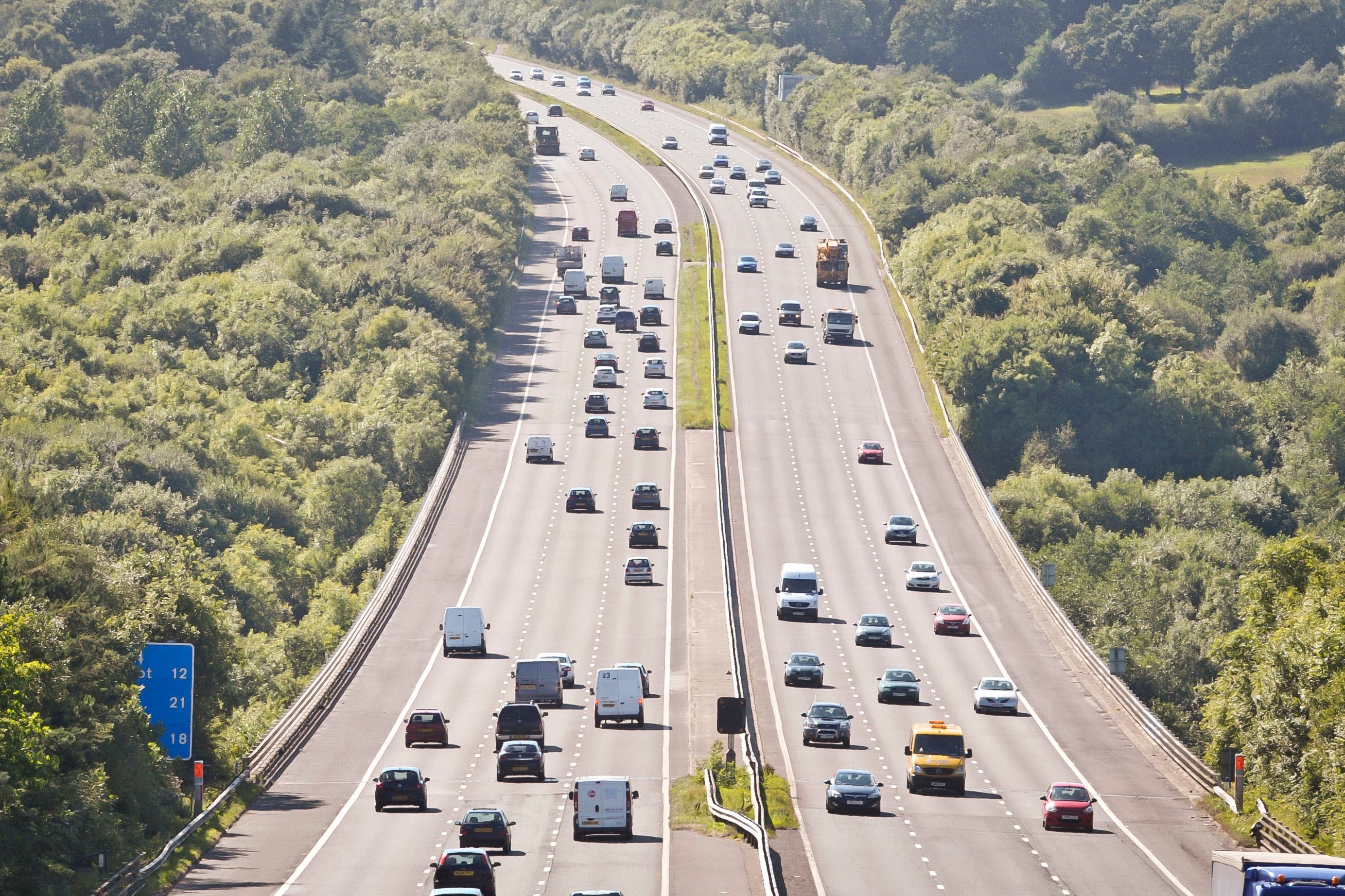Use prisoners to help keep country’s motorways tidy, says ex-roads minister
Conservative MP Sir Mike Penning said he was informed during his time in Government that such a move would not be safe.

Prisoners held in open jails should help clear litter dumped on England’s motorways, according to a Conservative former roads minister.
Sir Mike Penning said inmates and those subject to community payback orders should be supervised to litter pick alongside major roads in the country.
He highlighted roadside clean-up crews involving prisoners in the United States, but noted they are “not chained up or anything like that”.
Sir Mike also suggested awareness courses as part of stronger penalties for those motorists caught littering.
Roadside cameras could be used to catch those guilty of littering, MPs heard.
Sir Mike told a Westminster Hall debate in Parliament: “Perhaps we should do something not dissimilar that we did when I was the minister when we brought in the driver awareness course.
“Fines weren’t working, points weren’t working but actually the evidence for driver awareness courses shows that drivers do actually drive better and slower after they’ve done such a course.”
Sir Mike, on possible solutions to help tidy the roads, said: “I think, frankly, if someone has broken the law and they get a community project, I can’t think of a better way of paying back into the community than actually being in a team, done safely, going out, clearing the rubbish from the sides of our roads.
“I’m told that when I was the minister’s position that that was not possible because it wasn’t safe. Well, I used to be the health and safety minister as well in a different time. It could be made safe.”
Sir Mike developed his thoughts later in the speech as he said: “There are lots of volunteers out there today going out picking litter up and I’ve got them in my constituency and they do a fantastic job.”
He added people who have been “blighting” his community should be “supervised out there cleaning the roads”.
Sir Mike said: “One of the reasons if you go to Florida and you drive down those wonderful clean roads, it’s because they actually use people who are incarcerated to actually go and clear the roads.
“They are not dangerous criminals but they are people that are in for short-term sentences, they are not chained up or anything like that, but if they scarper, eventually of course they will be found – at the end of the day they will not have any parole.”
Sir Mike said the prisoners would be “starting the payback” by carrying out such work.
He went on: “In our open prisons, why couldn’t we have that today in parts of the country? It’d be slightly difficult in some of the open prisons in, say, Norfolk because there’s no motorways in Norfolk.
“But I fully understand that payback should mean payback.”
The MP for Hemel Hempstead was also critical of National Highways, which is responsible for cleaning litter on motorways and a small number of A roads in England.
Transport minister Richard Holden, replying to the debate, said: “National Highways has previously utilised the Ministry of Justice’s community payback project scheme to assist with clearances. Offenders have been involved in removing graffiti and rubbish at service stations as well.
“The Government still owns a significant number of service stations on the national highway network.
“This scheme was suspended during the Covid pandemic. That is something I will also undertake to write to (Sir Mike) about and also see what we’re doing to push National Highways to make more use of that going forward.
“However, due to safety considerations the opportunities can be limited in using offenders.”
Mr Holden also highlighted trials for greater use of technology.
He said: “Government and National Highways are exploring the potential of technology to be harnessed and used to tackle littering, such as using number plate recognition cameras for littering enforcement and to influence littering behaviour as well.
“We’re trialling the use of geofencing to push anti-littering messages to customers’ devices at 29 lay-bys currently on the A50 and A180.”
Mr Holden said people will be encouraged to take their rubbish home if the lay-bys have no bins, and the use of bins will be encouraged if they are sited in lay-bys.
He added the Government, in partnership with East Hampshire District Council, will shortly be “trialling the use of CCTV to capture evidence of people littering in lay-bys in the South East”.
East Hampshire will issue fixed penalty notices or pursue prosecution as appropriate, the minister said.
Bookmark popover
Removed from bookmarks